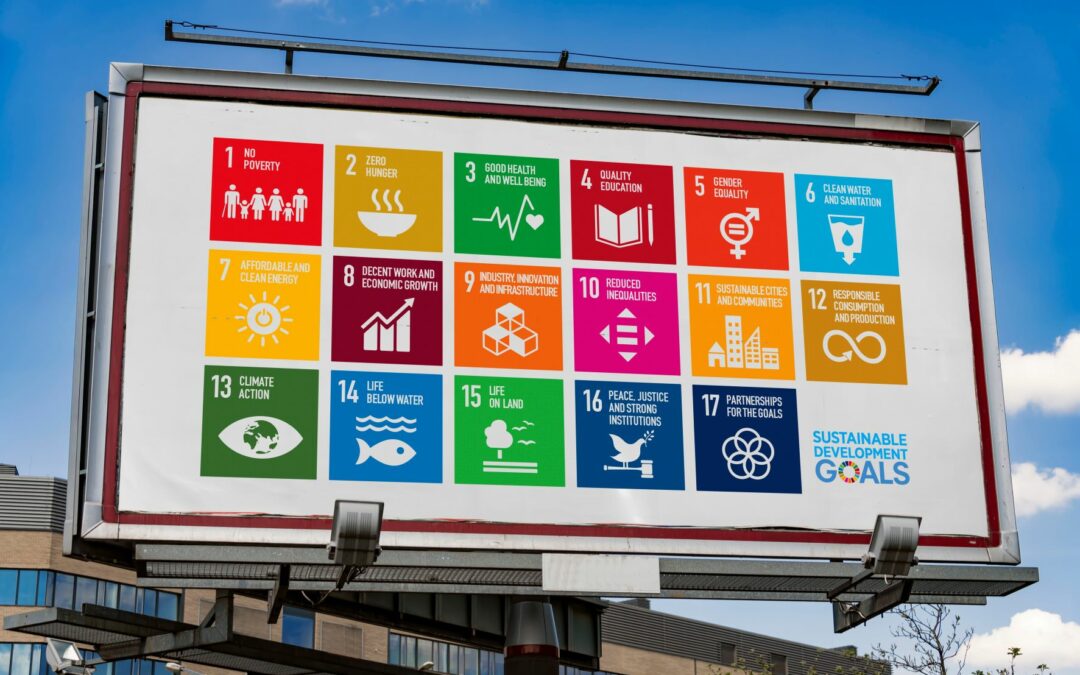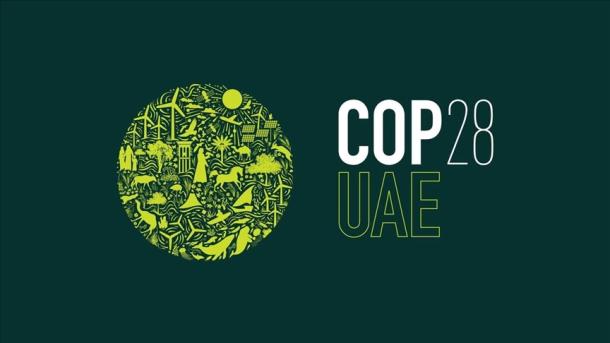Global Security is an elusive term with several definitions. According to Ken Booth, Global Security Threats can be divided into global existential threats and global emancipatory threats. Global existential threats, notably climate change and major wars, are mostly related to survival. These dangers do not distinguish between regions, nations, or ethnic groups. Global emancipatory threats are “glocal” challenges where “ideas and structures that promise to lift humans out of oppression are seriously challenged.” They include hunger and poverty, religious fundamentalism, crime, unemployment and human rights violations.
To appreciate the broad arrays of risks and challenges, consider the UN’s 17 Sustainable Development Goals, the WEF’s Top Ten Global Risks Report, and the 15 Global Challenges of the Millennium Project. The following organizations study the reach and nature of these threats to promote innovative solutions and advance global security and/or sustainability.
World Economic Forum (2008; Davos, Switzerland)
The World Economic Forum’s Network of Global Future Councils involves 700+ “premier thought leaders” grouped in >80 issue-focused Councils “committed to addressing the most pressing issues and opportunities of our time and aiming to provide new thinking and solutions.” They meet annually at the Summit on the Global Agenda, “the world’s largest brainstorming event,” hosted by the Government of the United Arab Emirates.
Global Risks Report 2021 is an annual WEF publication studying “persistent and emerging risks to human health, rising unemployment, widening digital divides, youth disillusionment, and geopolitical fragmentation.” Notably, environmental risk dominated the Top Ten Risks by likelihood in the 2021 report. These were: extreme weather, climate action failure, human environmental damage, infectious diseases, and biodiversity loss.
Earth System Governance Project (2008; Utrecht University)
A research alliance exploring political solutions to cope with the current transitions in the biogeochemical systems. Seeks to develop an integrated earth system governance from the local to the global level to ensure sustainable development. Staff: ~4; 300+ members
Global Governance Institute (2010; Brussels)
Brings together policy-makers, scholars, and practitioners from the world’s leading institutions to work on forward-looking approaches to global governance based on effective but accountable international organizations, the global rule of law, and the empowerment of the individual across borders and cultures. Staff: 38
Future Earth (2012; Paris)
A research platform providing knowledge and support to accelerate transformations to a sustainable world. The organization is rooted in the work of 20 Global Research Projects. These networks have a long history, in some cases stretching back decades, of generating research at the forefront of sustainability science.
Inspired by the Global Risks Report, Future Earth through the Global Risks Perceptions Initiative has been publishing the Global Risks Perceptions Report, mainly focused to fill the WEF’s report gap by consulting the international scientific community to assess the “scientists’ perceptions of global risks as a critical contribution to dialogues about potential solutions”. Further, the Emergent Risks and Extreme Events and the Integrated Risk Governance Project Networks are research hubs dedicated to understanding these challenges. Staff: 50
Global Challenges Foundation (2012; Stockholm)
Aims to reduce main global risks that threaten humanity, and raise awareness of nonlinear risks, particularly regarding climate change, other environmental damage, and political violence, and how these threats are linked to poverty and rapid growth in global population. It published the Global Catastrophic Risks 2021: Navigating the Complex Intersections that aims to present an overview of the risks that the world currently faces “based on consideration of certain crucial facts and the latest scientific research.” It seeks “to complement the World Economic Forum’s Global Risks Report,” highlighting that “these two approaches are highly complementary: perception is a strong driver of collective action and decision-making, while a more focused examination of the risks themselves will guide better long-term strategy and support the design of more efficient governance models.” Staff: 9
Global Solutions Initiative (2017; Berlin)
A policy forum that “brings together leading think tanks and stakeholders to provide policy solutions to the most relevant global institutions.” It “proposes policy responses to major global problems, generated through a disciplined research program, elaborated in policy dialogues, and addressed by the G20, the G7 and other global governance fora.” Staff: 13
World Future Council (2007, Hamburg)
The Council consists of 50 eminent global change-makers. It was formed to “speak on behalf of policy solutions that serve the interests of future generations,” focusing on identifying and spreading effective, future-just policy solutions. It runs five different programs; Peace and Disarmament, Climate and Energy, Sustainable Ecosystems, Sustainable Economies, and Future Justice. Staff: 19
Future World Foundation (2007; Zurich)
Strives to “advance the public good and global development, by seeking a balance between individual freedoms, and collective responsibilities.” It works with “leading research institutes and organisations around the world in systematic, continuous programmes focused on the themes of the Global Agenda.” Themes include: Delivering Sustainable Economic Growth, Reducing Poverty & Improving Equity, Improving Global Governance, Addressing Vulnerability & Promoting Security, Sharing Core Norms & Values.
European Union Institute for Security Studies (2002; Paris)
An “agency dealing with the analysis of foreign, security and defense policy issues.” Aims to “support the elaboration and projection of its foreign policy, and enrich the strategic debate inside and outside Europe.” It includes global governance, strategic foresight and transnational challenges such as terrorism, organised crime and unregulated migration. Staff: 43
International Institute for Strategic Studies (1958; London)
Seeks to advance a broader understanding of critical security issues. Provides information and analysis, advances understanding, enlarges networks, and influences the adoption of sound policies on security globally. Its flagship publication is The Military Balance, an “annual assessment of the military capabilities and defense economics of 171 countries worldwide.” Other notable publications are the Armed Conflict Survey, an “annual review of the political, military and humanitarian dimensions of all active conflicts, offering in-depth analysis of the drivers and dynamics of current wars” and the Strategic Survey, the annual review of world affairs offering “in-depth analysis by leading experts”. Staff: 60
Centre for the Study of Existential Risk (2012; Cambridge University, UK)
A multidisciplinary research center dedicated to the study and mitigation of technology’s risk to human existence. Humanity’s technological power brings about novel threats such as nuclear exchange, artificial intelligence, biotechnology, nanotechnology, increasing reliance on limited resources, and fragile but increasingly interconnected systems. Seeks to identify concerns that need to be taken seriously and have not received sufficient study. Staff: 44
Council on Strategic Risks (1974; Washington)
Addresses systemic risks to security in the 21st century, with emphasis on how these risks intersect and exacerbate one another. It “hosts non-partisan institutes on climate and security, and strategic weapons risks, as well as a program designed to study converging, cross-sectoral risks.” Conducts The Converging Risks Lab, “a research and policy development-oriented program to study converging, cross-sectoral risks in a rapidly-changing world.” The initiative seeks to “bring together experts from within the CSR’s distinct institutes, and from multiple sectors of the security community, to ask forward-thinking questions about these converging risks, and to develop anticipatory solutions.” Staff: 21
Center for a New American Security (2007; Washington)
A bipartisan organization developing national security and defense policies. Engages with “fact-based research, ideas, and analysis to shape and elevate the national security debate.” Energy, Economics & Security is included among its core research areas as well as Economic Statecraft, and Energy and Geopolitics. Staff: 31
The Millennium Project (1996; Washington)
A “global participatory think tank” that collects and assesses judgments on Global Challenges, presented in its State of the Future reports. The purpose of the project is “to assist in organizing futures research, improve thinking about the future, and make that thinking available through a variety of media.” This unique organization is composed of 70 nodes/groups around the world integrating information on 15 Global Challenges that overlap with most of the Sustainable Development Goals. In addition to the Challenges of physical and information war and peace, it recognizes Transnational Organized Crime as a significant global challenge, promoting the idea that a financial prosecution system could be established as a global new body to complement related organizations addressing various parts of organized crime. Staff: 10; 70 associated nodes
Belfer Center for Science and International Affairs (1973; Harvard University)
A research center assessing demanding threats to US national interests and international security in the quarter-century ahead. The International Security Program has recognized the threat of terror, analyzed its causes, and recommended what the US should do to prevent and fight it. Other programs and interests focus on Diplomacy and International Politics, Environment and Natural Resources. Staff: 59
Council of Councils (2012; New York)
An “initiative of the Council on Foreign Relations connecting leading global foreign policy institutes.” It strives to “inject the conclusions of its deliberations into high-level foreign policy circles within members’ countries”, composed of 28 major policy institutes from some of the world’s most influential countries many belonging to the G20. Produces the Global Perspectives series and the Global Governance Working Papers. The former recently published COP26: Much Achieved, Huge Opportunities Missed, a short experts’ review on major international developments regarding Glasgow’s conference.
Institute for Future Initiatives (2019; Tokyo)
Makes “policy and social recommendations on future society issues and pursues research in collaboration with society toward those ends.” Research areas include Security Studies, Technology and Risk, and the Sustainable Development Goals. For instance, it holds the Security Studies Unit Forum, an event “providing insights on diplomatic and security issues by inviting distinguished experts and policy practitioners in and outside Japan.” Staff: 26
An endnote
The existential and emancipatory threats faced by the international community require a shift in the current terms in which nation-states involve each other to address the menaces that the global-we as a community of shared fate is now struggling to overcome. The organizations in this list conduct research and policy-advising to prepare decision-makers for making well-informed choices regarding national and international public policy. They play a key role because if “security is in the mind, as well as external to it, the reality of global security is importantly a construction of ideas” (Booth, p14). Therefore, questioning or advancing the pattern of ideas established through research is a top priority task.
However, a lack of interconnection and collaboration between these organizations is evident and worrying. Disconnected from each other, most organizations in this list do not mention the SDGs or each other in their research agendas. Furthermore, only the European organizations listed take into account Global Governance as a key issue. For example, only the Global Challenges Foundation has an entire section titled “Partnerships” to highlight its collaborative efforts. To effectively change the global security landscape, first and foremost, the present scheme of policy research and policy advising among organizations needs significant change.
SUGGESTED READING
- Booth, K. (2014), “Global Security,” in M. Kaldor & I. Rangelov (Eds.), The Handbook of Global Security Policy (Handbooks of Global Policy), pp. 11–31. Wiley-Blackwell.
ABOUT THE AUTHOR
Lorenzo Rodriguez is a Research Associate of the S&S Guide. He earned a Bachelor’s Degree in Political Science from the University of Carabobo, Venezuela, and is currently studying for a Master’s Degree in Peace and Conflict Studies at the University of Ankara as a Türkiye Scholarships holder.
ALSO SEE: other QuickLooks at www.securesustain.org on such topics as Regional Security, Human Security, Migrants & Refugees, Climate Security, and more.




0 Comments